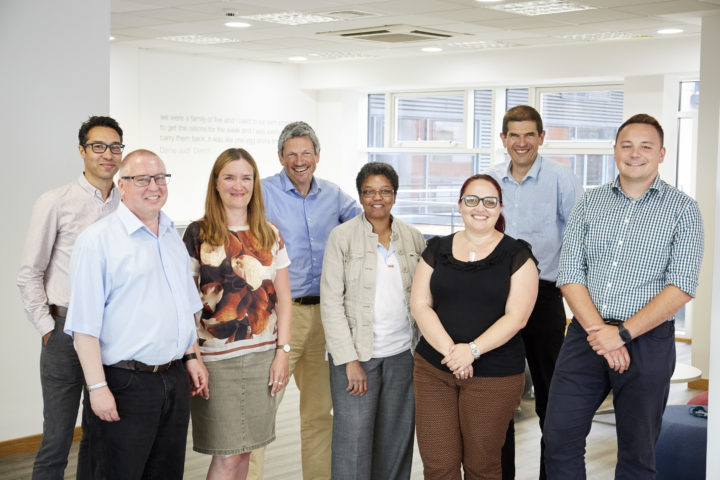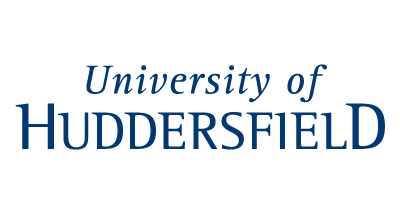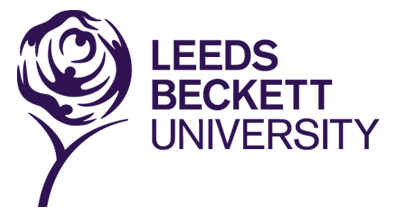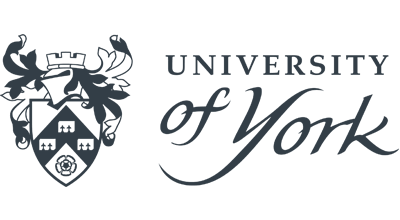
Our Innovation Champions have a wealth of experience and expertise in developing medical technologies.
Embedded in each of the Translate partner universities, they are on-hand to offer advice about technology progression and/or to enhance innovation skills and capabilities. Together, they are sharing good practice and creating new opportunities for collaboration.
Find out more about Innovation Champions at your institution, and get in touch.
With over 10 years research experience Thomas’ research has spanned protein biochemistry, biophysics, imaging and cell biology. Since 2010 Thomas’ research has concentrated on the role of joint residence Mesenchymal Stem Cells (MSCs) in cartilage, bone and soft tissue repair. In particular, how by understanding MSC biology, repair of these tissue can be better augmented using devices, biological therapeutics or drugs.
Thomas has lead the development of a novel medical device in the musculoskeletal field, capitalising on the use of minimally manipulated MSCs. He developed this device from a laboratory project to a clinical trial and as such has gained a wide range of skills and experience in translation and commercialisation. He enjoys working closely with surgeons and clinicians as well as several industry partners.
Thomas is involved in all facets of research from basic science to clinical trials and has a keen interest in developing novel medical technologies
Dr Betmouni graduated from Charing Cross & Westminster Medical School, London in 1989, having previously obtained BSc from the same institution in 1986. Dr Betmouni completed a DPhil at the University of Oxford (1994-1997) looking at the development of inflammatory response in the brain in chronic neurodegenerative diseases associated with dementia. The results obtained during the course of the DPhil investigations led to the award of a Medical Research Grant on which Dr Betmouni was named post-doctoral scientist (Prof Hugh Perry’s Group, Universities of Oxford and Southampton).
In 2012, Dr Betmouni was appointed Director of Clinical Pathology and has been leading Bradford Pathology: a Faculty of Life Sciences initiative to establish a working (accredited) histopathology facility within the university. Bradford Pathology will provide education and training in the design and delivery of diagnostic histopathology services and conduct research into factors that can promote the uptake of digital technologies into the laboratory setting. Dr Betmouni is also interested in exploring means of integrating patients’ histopathology results into their electronic records.
Dr William Bolton is an Academic Foundation Doctor and National Institute for Health Research (NIHR) Clinical Research Fellow in the Global Health Research Group Surgical Technologies in Leeds UK, taking time out of surgical training to complete a PhD exploring surgical technologies for application in low and middle-income countries. His research interests include the development and evaluation of novel surgical technology, its applications to low-resource settings and clinical trial design in Global Surgery. In his current role he works closely with the Leeds Royal College of Surgeons of England Surgical Trials Centre, NIHR Surgical MedTech Cooperative, the Leeds Innovation in Surgical Technologies Network and the Nuffield Centre for International Health and Development. His clinical interests include essential and emergency surgery, general surgery, trauma and orthopaedic surgery, plastic and reconstructive surgery, extreme medicine and emergency medicine. He is a board member of the NIHR Surgical MedTech Cooperative where he is co-founder of the student and trainee-led affiliated group, the MedTech Foundation. He is also a steering committee member of the Yorkshire Surgical Research Collaborative and a board member of the University Of Leeds School Of Medicine MBChB Enterprise Programme.
Dr Samit Chakrabarty is a systems neurophysiologist, studying plasticity and interaction between the spinal circuits and their modulators – the sensory inputs from periphery and descending inputs from brain. PhD – University of Cambridge; Postdoc – Columbia University, NYC; Spinal Cord Research Centre, Winnipeg, Canada; Visiting Associate Professor – Panum Institute, University of Copenhagen; Research Associate Professor – Columbia University, NYC
Sareen E Galbraith is a molecular virologist working on RNA viruses. Work in her lab focuses on the interaction of positive stranded RNA viruses (flavivirus and alphavirus) with their mammalian hosts and on detection of these viruses in their mammalian and vector hosts.
After her initial PhD studies, she carried out two Postdoctoral Research Fellowships where her work focused on elucidating virulence determinants in Semliki Forest virus to give greater understanding of the molecular pathogenesis of the virus and improve vector biosafety. She then created a replication competent attenuated Semliki Forest virus vector for use as a vaccine and as a gene therapy agent for cancer and neurological diseases. She worked to develop and patent the replicating Semliki Forest virus vector with patent agents and Technology Transfer Managers for Trinity College and University College Dublin.
At the University of Texas Medical Branch, her research investigated the molecular epidemiology of West Nile virus. The results from this work have been used to inform vaccine design.
Her flavivirus research expanded to involve sequencing and molecular phylogenetic analysis of Japanese encephalitis virus (JEV); discovering a new fourth genotype of the virus. Recent work in her lab has examined the effect of autophagy on flavivirus and alphavirus growth in cells of the central nervous system
Thomas Krauss is Professor of Photonics in the Department of Physics at the University of York. His research aims to understand and control the light-matter interaction in photonic nanostructures, with a current focus on using such structures for studying bacteria in the context of antimicrobial resistance. He has led numerous EU and EPSRC projects in various aspects of nanophotonic and photonic crystal structures and gives invited and keynote presentations at international meetings at a rate of 10-15 per year. He has published 300 refereed journal articles and 6 patents. Prof Krauss is a Fellow of the Institute of Physics, the Royal Society of Edinburgh and the Optical Society. In 2015, he was awarded a Royal Society Wolfson Merit Award. In his Research Champion role, he drives interdisciplinary research across the academic boundaries to best meet the grand scientific, social and environmental challenges of our time.
Nat has an international reputation in the Alzheimer’s Drug Discovery research field. He is a Fellow of the Royal Society of Biology and part of the Biomedical Sciences team in the School of Clinical & Applied Sciences.
For the past 20 years Nat has led the Amyloid-Binding Peptides research group, which conducts research into the biochemical interactions of amyloid peptides and their role in Alzheimer’s disease, Diabetes, Creutzfeldt-Jakob disease and oxidative stress responses. He has used molecular biology, biochemical and cell biology techniques to discover and characterize the mechanisms of neuroprotection of a number of compounds. He has teaching experience, at both undergraduate and postgraduate levels, in the areas of Physiology, Pharmacology, Clinical Biochemistry, Neuroscience and Entrepreneurship.
Nat is and entrepreneur and has filed patent applications, which were taken to the intention to grant stage in Europe. He has founded an in silico based company, Neurodelta Ltd and raised government funding for commercial research in the Alzheimer’s Drug Discovery area.
Professor Monekosso is Director of Research at Leeds Beckett University. Dorothy holds a PhD (2000) in Space Systems Autonomy (autonomous spacecraft) from the Surrey Space Centre, a Master’s in Satellite Engineering and Bachelor in Electronic Engineering. She began her career in space sector, developing on-board computers and control systems for spacecraft. She became interested in Artificial Intelligence during her research at the Surrey Space Centre, applying machine learning methods and techniques to spacecraft autonomy. On the basis of this work, she was awarded a Royal Academy of Engineering, Engineering Foresight Award and spent a year at the Jet Propulsion Lab in Pasadena California. Her current research interests are applications of machine learning to intelligent systems.
She has led several digital health projects funded by the European Commission, HIRG Malaysia, Royal Academy of Engineering, DAIWA, and security projects funded USA Department of Homeland Security and co-led several security projects funded under national and international programmes. Dorothy is currently leading a H2020 Internet of Things project MONICA: Management Of Networked IoT Wearables – Very Large Scale Demonstration of Cultural Societal Applications.
Dorothy has authored and co-authored over 100 peer-reviewed publications in scientific journals.
Karen is Professor and Director for the Institute of Skin Integrity and Infection Prevention, University of Huddersfield. She is also Adjunct Associate Professor, Queensland University of Technology, academic editor for Wounds UK and current chair for the International Wound Infection Institute. Currently she is working with NHS England on the Right Care initiative. Karen completed her BA (Economics and Social Studies) and MA in Health Service Management at the University of Manchester before completing her PhD at the University of Salford. Her clinical background is in orthopaedics and tissue viability. She has over 30 years’ experience in both clinical practice and in academia. Her research interests focus on skin integrity and infection prevention in particular the management of pressure ulceration, the importance of enhancing Health Related Quality of Life Outcomes and measurement of pressure, shear and friction. She is widely published (in excess of 100 papers) and has edited the text book Pressure Area Care and co-edited Lower Extremity Wounds: A Problem Based Approach. She has completed numerous systematic reviews and has expertise in qualitative research methodology.
Stephen is currently a Reader in the Department of Electronics at the University of York, has a BSc in Computer Science, an MSc (by Research) and PhD in Electronic Engineering . His research has always been concerned with the application of computers to problems in healthcare. His current research interests include developing novel representations for evolutionary algorithms, particularly applied to the diagnosis of neurological dysfunction and analysis of mammograms. Stephen has authored over 75 refereed publications, is a Chartered Engineer and a Fellow of the British Computer Society. He is an Associate Editor for the journal Genetic Programming and Evolvable Machines and a member of the editorial board for the International Journal of Computers in Healthcare and Neural Computing Applications.
Cristina has a multi-disciplinary PhD with a focus on the development of a micro-scale medical sensor for pressure ulcer detection using a novel stretchable conductor. She is now based at the University of Bradford in The Centre for Polymer Micro and Nano Technology working as Research & Knowledge Transfer Development Officer at the Centre. Her role is to engage and deliver commercial projects to support SMEs and to undertake research.
Research and Areas of Expertise:
– Development of bio-medical devices via injection moulding
– Surface characterisation of different materials and components using: SEM, AFM, White Light Interferometry, Confocal Microscopy
– Surface chemistry modification via plasma treatment or casting on different surfaces
– Surface structuring of polymers via injection moulding or photolithographic methods
– Material properties modification which are affected by different process parameters
– Stretchable conductors
– Thin film deposition onto polymers and elastomers
– Ultrasound monitoring of injection process
Pete Twigg heads the Medical and Healthcare Technology programme team at Bradford and is deeply involved with the development of healthcare science and technology education programmes at a national level. His research interests lie in the application of mechanical analysis to biological systems, ranging from organic molecules and cells to prosthetics and human movement.
The biomaterials aspects of this work are largely conducted in the Bradford University Medical and Polymer Engineering Research (BUMPER) characterisation laboratory, which he heads. This facility has an atomic force microscopy suite with Dimension 3100 and MultiMode microscopes, as well as nanoindentation and PicoForce mechanical characterisation. The laboratory is a multi-user facility with a host of characterisation equipment and also houses a category 2 biological containment room. Current projects include cartilage characterisation and the development of cartilage substitutes, as well as cell adhesion studies.
Orthopaedics and prosthetics mechanics have been a research interest for some time, including joint replacement, fracture fixation, orthotics and lower limb prosthetics. Techniques vary from friction and wear simulation and testing, through pseudo-static and dynamic mechanical testing, to 3D kinetic analysis. The kinematic and kinetic work is largely done using an 8 camera Vicon motion capture system, which has also been applied to pre and post-operative clinical subjects and investigation of the role of vision in negotiating obstacles, among other studies. Physiological measurement, such as electromyography, has also been linked to some kinetic studies, such as the investigation of fatigue effects.







